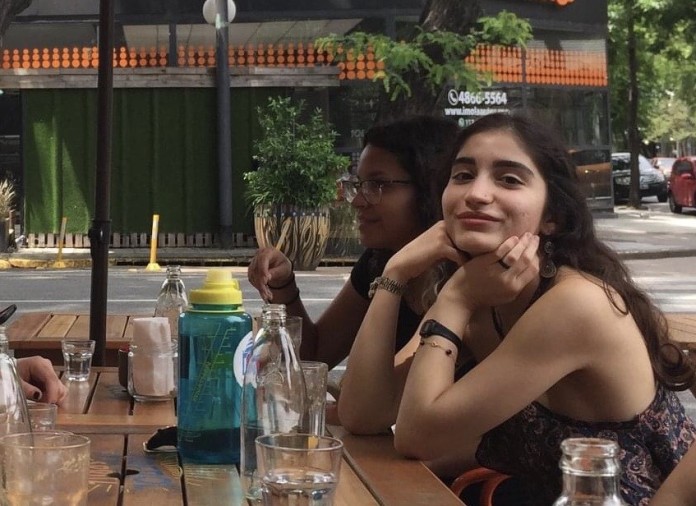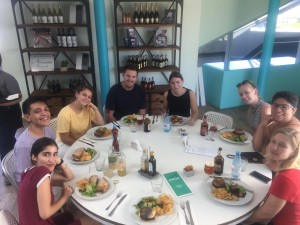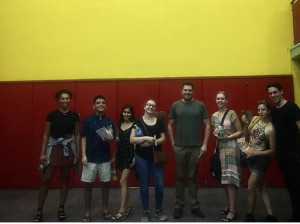Maedeh from Iran and the U.S. joined us in 2019 for our University Spanish Program. Here is her story…
I immigrated to the United States with my family when I was 6 years old; my father came to pursue a PhD with the intention of moving our family back to Iran when he finished. However, after seeing the socio-politically unstable atmosphere and economic situation in Iran worsen, my parents decided to stay in the U.S. With this decision came years of uncertainty for my family when we were unable to gain job security and permanent residency in the U.S.
After living in the U.S. for almost 15 years in uncertainty over the continuation and renewal of my family’s legal status, I resonate with the challenges that immigrants face in the United States. However, I also recognize my family’s privileged position: we probably could have gone back to Iran with a good level of security given my parents’ education status; yet my parents still chose to stay in the U.S. despite struggling here for economic security that they could’ve attained more easily in Iran. So my heart goes out to immigrants who come here because they face way more risks and danger in their homes than my family did and who have even less to gain from coming to the U.S. than my family has.
It’s because of my unique position as a highly privileged yet still disenfranchised immigrant whose situation only vastly improved within the past couple of years—both my parents finally have jobs and we have our green cards—that I want to leverage my experiences to fight for immigration reform and better policies in the U.S. For me, this opportunity to improve my Spanish language skills and to continue learning about the origins and cultures of the largest and one of the most diverse group of immigrants in the U.S.—Latin Americans—is intimately connected to those goals.
My interest in learning Spanish started because I wanted to work as a doctor for underserved immigrant and refugee communities in the U.S. that primarily speak Spanish and Arabic. However, my career aspirations evolved as I realized that I had more of an interest in helping transform systems and policies that create health issues in immigrant populations, rather than becoming a doctor who treats the symptoms caused by broken systems. With this realization, my desire to learn Spanish increased as I started considering pursuing public health and policy, and eventually a degree in anthropology, where I’d constantly interact and communicate with people from different backgrounds and cultures in order to understand how to be an advocate for their rights and needs. The fact that Argentine Americans aren’t representative of the majority of the Latino population in the U.S. makes it even more unique and vital to learn about Argentine culture in order to get a more comprehensive and accurate picture of Latin America’s diversity, both culturally and socio-politically.
I knew that I would be able to adapt to a foreign environment because of my background as an immigrant in the U.S., and because I also spent the past summer in Mexico. While in Mexico, I learned about its rich, diverse culture and built relationships and connections with my co-workers and host family that have lasted. I hoped to show Argentines how diverse Americans and our experiences are, and when I came back, I hope to share what I’ve learned about Argentina and its people with those in the U.S. I want to tear down the borders and walls that people build in their minds with subtle prejudice and racism, and instead help build bridges between communities and cultures in order to enhance understanding and empathy for people who are different from us.





